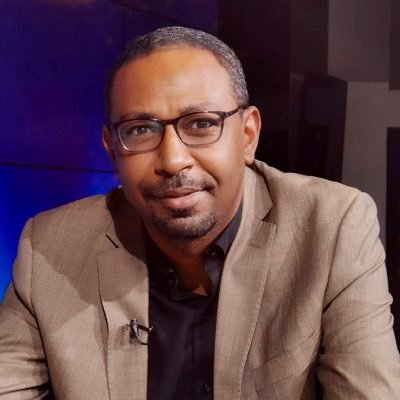The Army Advances in Khartoum as “Rapid Support Forces” Target Vital Facilities

By Amjad Fareed
On Thursday, January 23, 2025, thick black clouds covered the skies of Khartoum Bahri, in the Sudanese capital. It was later revealed that the source was the Al-Jaili Petroleum Refinery, located in the northern part of the city. The refinery had been seized and fortified by the “Rapid Support Forces” (RSF) early in the war.
As Sudanese army forces advanced steadily to reclaim the capital, a faction of the RSF stationed at the refinery attempted to break the siege by setting some fuel depots on fire. Their goal was to divert attention toward preventing the destruction of the refinery and use the chaos as a cover to escape.
The fire, however, only reached one crude oil tank, and the army successfully captured the fleeing RSF members, while the rest retreated, using the engineers and refinery workers as hostages—whom they had been holding since the start of the war.
The destruction of the refinery—which produces around 150,000 barrels of petroleum derivatives daily—would have resulted in significant human losses, extensive environmental damage, and a severe economic blow to Sudan. The facility is one of the country’s key infrastructure pillars and the primary site for refining oil and its derivatives.
The attempt to destroy Al-Jaili Refinery represents another chapter in the RSF’s deliberate targeting of vital civilian infrastructure in Sudan. This follows a series of coordinated attacks on power and water systems and other essential facilities, often carried out using advanced drones supplied by foreign actors backing the militia. In January alone, the RSF executed the following attacks:
January 13, 2025 – Attack on Merowe Dam Power Station: The RSF used a drone to target the Merowe Dam power station in Northern State, which generates about 40% of Sudan’s electricity.
January 18, 2025 – Attacks on Al-Shouk Power and Water Stations: The RSF conducted drone strikes on Al-Shouk power station in Al-Gedaref State, plunging the states of Al-Gedaref, Kassala, and Sennar into darkness. Simultaneously, Al-Gedaref water station was attacked, severely restricting access to clean drinking water for residents.
January 19, 2025 – Attack on Dongola Power Station: The RSF used drones to attack Dongola power station in Northern State, further disrupting energy supplies in the region.
The Sudanese army also announced its success in thwarting drone attacks on power production stations in Umm Debekrat, White Nile State, on January 21, 2025.
These repeated assaults on Sudan’s critical infrastructure are consistent with the RSF’s strategy of targeting civilians. The escalation of such attacks aligns with the militia’s recent military losses in Al-Jazirah State, the liberation of its capital, Wad Madani, and the continued resilience of Al-Fashir, the capital of North Darfur State. These developments, combined with internal divisions among RSF’s political allies about forming a parallel government in its controlled areas, indicate that the militia is using these attacks as a form of political pressure. This places their actions squarely within the definition of terrorism.
Terrorism is widely understood as the “use of unlawful violence by groups or individuals to achieve political goals by intimidating adversaries, societies, and governments.” The RSF’s actions align with many international definitions of terrorism and are in clear violation of several legal frameworks:
Geneva Conventions and Additional Protocols: Article 54 of the First Additional Protocol prohibits attacks on civilian objects essential for survival:
“Starvation of civilians as a method of warfare is prohibited. It is prohibited to attack, destroy, remove, or render useless objects indispensable to the survival of the civilian population.”
Attacking infrastructure like electricity and water systems, as well as oil facilities, is a clear violation of this article and constitutes a war crime under international law.
International Convention for the Suppression of Terrorist Bombings (1997): This convention criminalizes deliberate destruction of public infrastructure, defining such acts as those intended to:
Cause death or serious bodily injury, or
Create extensive destruction of public facilities to intimidate the population or coerce governments.
The RSF’s deliberate targeting of power, water, and oil infrastructure in Sudan meets these criteria.
UN Security Council Resolutions 1566 (2004) and 1373 (2001): Resolution 1566 defines terrorism as criminal acts, including those targeting civilians, committed to cause death or serious injury and spread terror. Resolution 1373 calls for international cooperation to combat terrorism. The RSF’s actions fit the definitions and intents of these resolutions.
According to the Armed Conflict Location & Event Data Project (ACLED), 77% of violence against civilians in Sudan during 2024 was perpetrated by the RSF.
In late 2024, the United States classified the RSF’s actions as genocide, imposing legal and political obligations to address the situation in Sudan. This requires moving beyond false neutrality and actively opposing the RSF’s terrorism and war crimes.
The RSF’s methods mirror those of Boko Haram in northern Nigeria, where attacks on electricity and water systems have been used as terror tools. For example:
In 2015, Boko Haram attacked a power station in Borno State, cutting electricity to thousands of homes and crippling essential services.
In 2017, the group destroyed water supply lines in Yobe State, causing a widespread water crisis.
Addressing the RSF’s actions begins with defining them accurately—as terrorism—and resisting political agendas that undermine Sudanese safety and stability. Recognizing the RSF’s crimes for what they are is essential for halting the war and securing Sudan’s future.



